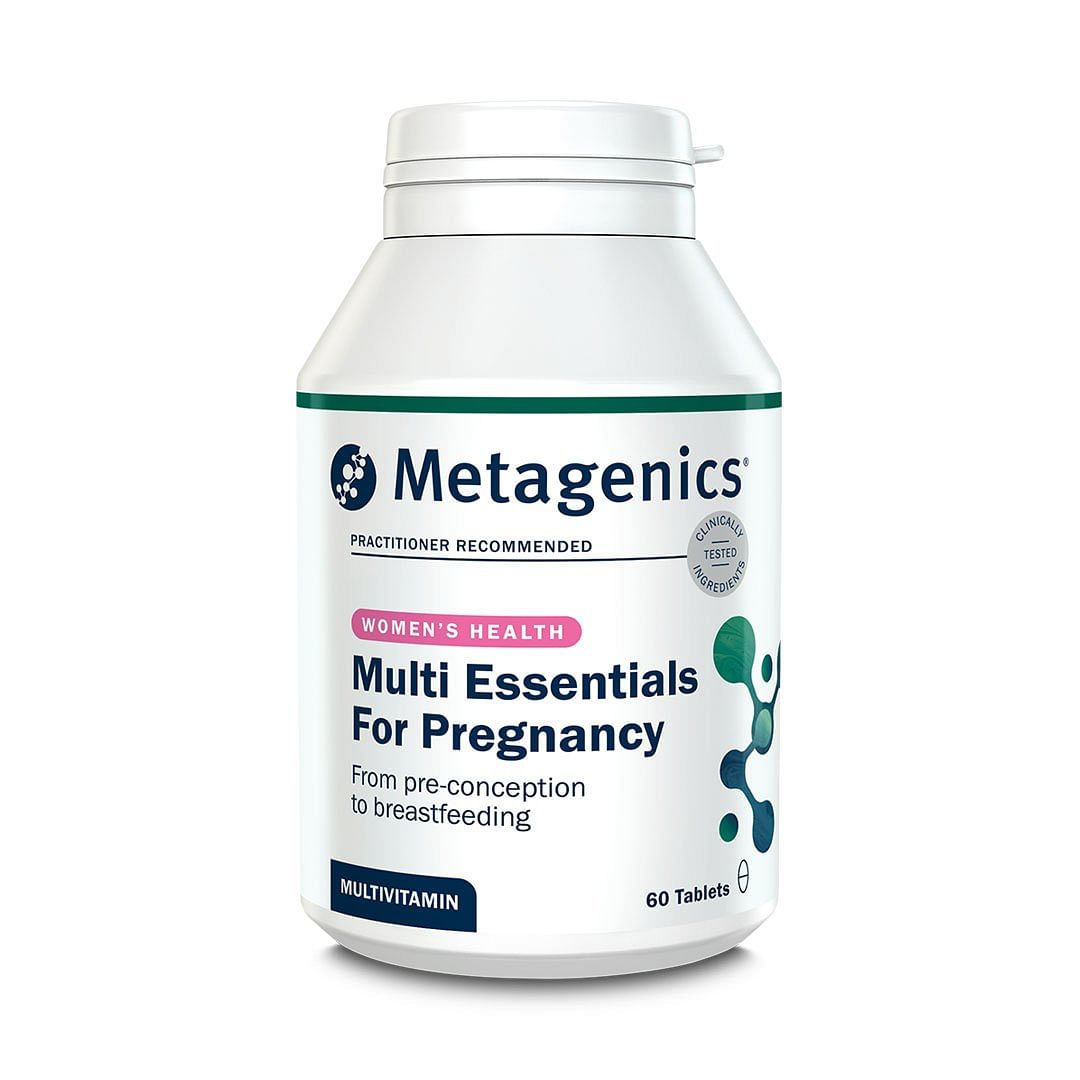Vitamin D is an essential nutrient that supports everything from strong bones to immune function. Yet, there are key stages in life where ensuring sufficient Vitamin D intake becomes even more vital. One such moment is pregnancy, where this sunshine vitamin takes on added importance for both mother and baby. Adequate Vitamin D levels during pregnancy can promote healthy foetal development, support maternal immune health and reduce the risk of complications such as gestational diabetes and preeclampsia. Beyond pregnancy, other life stages also demand increased attention to Vitamin D such as infancy when developing bodies need strong nutritional foundations and menopause when bone health becomes a major focus.
Why is Vitamin D Important During Pregnancy?
When you're expecting, your body is doing the extraordinary by nurturing life, supporting new development and adapting rapidly. During this transformative time, Vitamin D becomes a core pregnancy vitamin, playing a vital role in the health for both mother and baby.
Vitamin D is known for its role in calcium absorption and bone health but its importance extends far beyond that, especially during pregnancy. It influences the immune function, hormone regulation and cell growth while also protecting against several pregnancy-related complications.
Here’s a quick look at how Vitamin D supports key aspects of health during pregnancy:
| Area of Health | Benefits for Mother | Benefits for Baby |
| Bone & Skeletal Health | Supports maternal bone strength as calcium demand rises | Helps develop baby’s bones and teeth; promotes skeletal formation |
| Immune Function | Boosts maternal immunity to reduce risk of infections | May support development of baby's immune system |
| Pregnancy Complications | Linked to lower risk of gestational diabetes, preeclampsia, and hypertension | May reduce risk of preterm birth and low birth weight |
| Mood & Mental Health | May support mental wellbeing and reduce risk of prenatal depression | Potentially linked to neurological development in baby |
| Calcium Absorption & Metabolism | Essential for maternal calcium regulation during foetal growth | Helps regulate calcium and phosphate for developing tissues |
Research continues to underline Vitamin D's role in safe, healthy pregnancies from supporting foetal growth to reducing risks for both mum and baby. That’s why many health professionals recommend Vitamin D supplementation during pregnancy, alongside other vital nutrients.
When to Start Taking Vitamin D in Pregnancy
Pregnancy is a time when your body’s nutritional needs shift into high gear and Vitamin D quickly moves to the top of the priority list. Known as the "sunshine vitamin" because our bodies produce it through sun exposure, Vitamin D supports immune function, bone development and hormone balance, all of which are critical during pregnancy. In the UK (and similar northern climates), natural sunlight isn't strong enough for most people to make adequate Vitamin D from October to early March. That’s why the best time to start taking Vitamin D is as early in pregnancy as possible and ideally at the first confirmation of pregnancy or even while planning.
| Month | Sunlight Levels in UK | Supplementation Recommendation |
| March–September | Sunlight may be sufficient if you're spending time outdoors daily | Supplementation is still recommended — especially if limited sun exposure |
| October–February | Sunlight is too weak to produce Vitamin D naturally | Daily supplementation is essential |
Starting Vitamin D supplementation early in pregnancy ensures that your levels are strong during key stages of foetal development, especially for skeletal formation and immune support.
Vitamin D's role doesn't stop when baby arrives. Breastfeeding mothers are advised to continue taking Vitamin D supplements daily, as breast milk alone typically doesn’t contain enough Vitamin D to meet a baby’s needs. Maintaining your intake helps support your own recovery and ensures your baby receives the benefits through breast milk while aiding bone development, immune system maturation and long-term health.
How Much Vitamin D Should I Take when Pregnant?
Public health guidance in the UK recommends a daily intake of 10 micrograms (400 IU) during pregnancy and breastfeeding. While Vitamin D is vital, more isn’t always better. Excessive intake may lead to calcium build-up in the body (hypercalcaemia), which can cause nausea, weakness and in rare cases, complications with the kidneys or heart. Every pregnancy is unique. Factors like sun exposure, skin tone, diet, and medical history can influence your Vitamin D levels. That’s why it's always best to:
- Speak with your midwife, GP, or healthcare provider about your individual needs.
- Ask whether you should get your Vitamin D levels checked, especially if you’re at higher risk of deficiency.
Getting professional advice ensures your supplementation supports both you and your baby in a safe and effective way.
Symptoms of Low Vitamin D during Pregnancy
Vitamin D deficiency is surprisingly common during pregnancy, especially in regions with limited sunlight or among women with restricted diets. But because many symptoms overlap with typical pregnancy discomforts, it’s easy to overlook the signs. Recognising them early can make a big difference for both maternal and foetal health.
Common Symptoms in Expecting Mothers
| Symptom | Description |
| Fatigue & Tiredness | Persistent exhaustion even after adequate rest |
| Bone & Back Pain | Aching bones or lower back discomfort due to weakened skeletal support |
| Muscle Weakness | Difficulty performing everyday tasks or feeling physically drained |
| Mood Changes | Increased risk of depression, anxiety, or emotional instability |
| Frequent Infections | Weakened immune system leading to more colds or illnesses |
| Softened Bones (Osteomalacia) | In severe cases, bones may become soft or brittle, increasing fracture risk |
These symptoms may be subtle, but they’re worth discussing with your midwife or GP, especially if they persist or worsen over time.
Low maternal Vitamin D levels can also impact the developing baby increasing the risk with:
- Low birth weight.
- Delayed skeletal development.
- Higher likelihood of preterm birth.
- Increased susceptibility to respiratory infections and allergies later in life.
If you’re concerned about your Vitamin D levels, a simple blood test can help determine whether supplementation is needed.
Vitamin D and Other Supplements
Vitamin D is a nutritional powerhouse during pregnancy, but its full potential is unlocked when paired with the right co-nutrients. These complementary vitamins and minerals help improve absorption, activate metabolic processes and provide complete support for both maternal health and foetal development. Here’s a breakdown of key nutrients that work synergistically with Vitamin D.
| Nutrient | How It Compliments Vitamin D | Benefits During Pregnancy |
| Calcium | Vitamin D enhances calcium absorption in the gut | Crucial for building baby’s bones and preventing maternal bone loss |
| Magnesium | Activates Vitamin D in the body and helps regulate calcium levels | Supports nerve function, muscle health, and prevents cramps |
| Vitamin K2 | Directs calcium to bones and away from arteries when Vitamin D is high | Helps foetal skeletal development and reduces vascular calcification risk |
| Omega-3 (DHA) | Works with Vitamin D to regulate inflammation and support cell function | Improves cognitive and visual development in baby; mood support for mum |
| Zinc | Supports Vitamin D metabolism and immune response | Aids in DNA synthesis and helps reduce risk of complications |
| Vitamin A | Balances immune activity with Vitamin D | Important for vision, immune strength, and cellular growth |
Taking one supplement in excess without considering its counterparts can lead to imbalances, such as too much calcium without magnesium or K2, which may reduce Vitamin D's effectiveness or increase health risks. That’s why prenatal formulations are specifically designed to deliver safe, targeted amounts of these nutrients in concert. Be sure to consult your midwife, GP, or nutrition specialist before starting or adjusting your intake.
|
Metagenics Multi Essentials For Pregnancy Multivitamin - 60 Tablets 25 essential vitamins and minerals to support pre-conception, pregnancy, and breastfeeding. Developed with safety in mind, this high-strength formula includes only ingredients considered safe during pregnancy—like beta-carotene as a gentle form of vitamin A. Metagenics’ advanced nutrient forms promote fertility, immune health, energy, and foetal development. |
Why Choose Supplement Hub?
Supplement Hub is a trusted provider of high-quality nutritional supplements, offering a comprehensive range of vitamins, minerals and other essential nutrients to support a healthy lifestyle. Whether you're preparing for pregnancy, supporting a growing baby, or simply looking to improve your overall wellness, we offer targeted solutions across a wide range of categories. Supplement Hub ensures that you get practitioner-approved products.
We always recommend consulting with a healthcare professional before selecting the right supplements for you.






